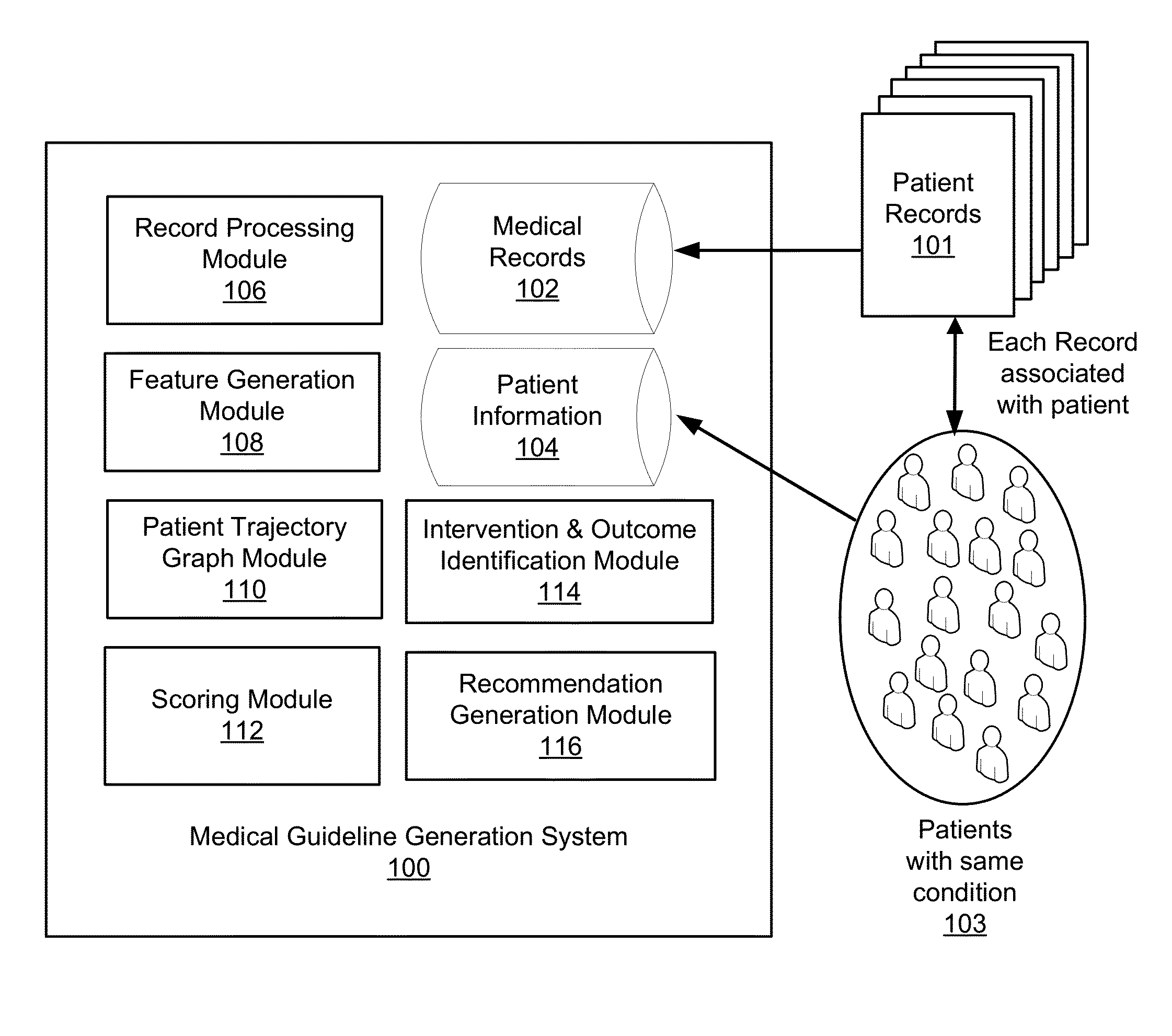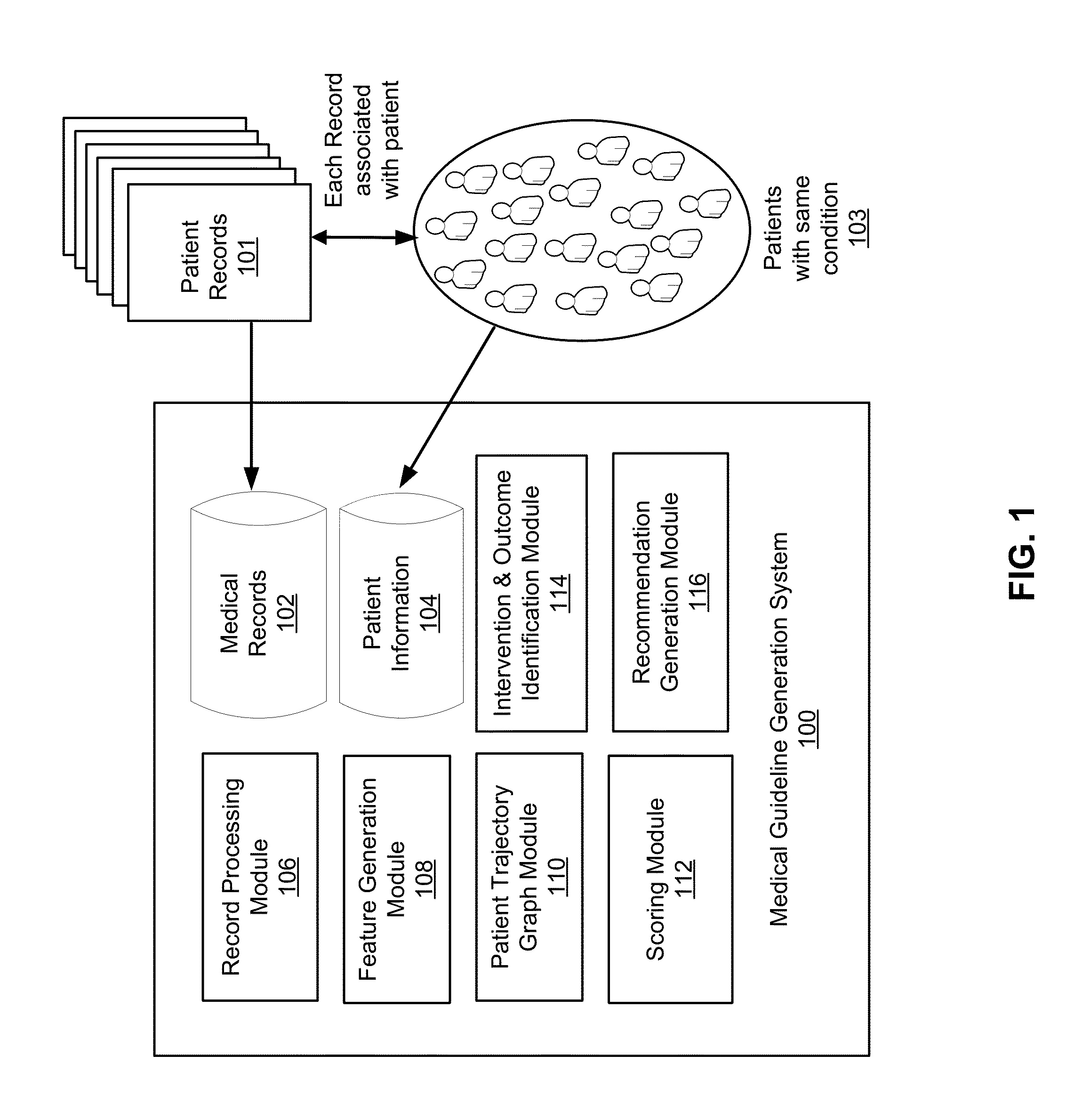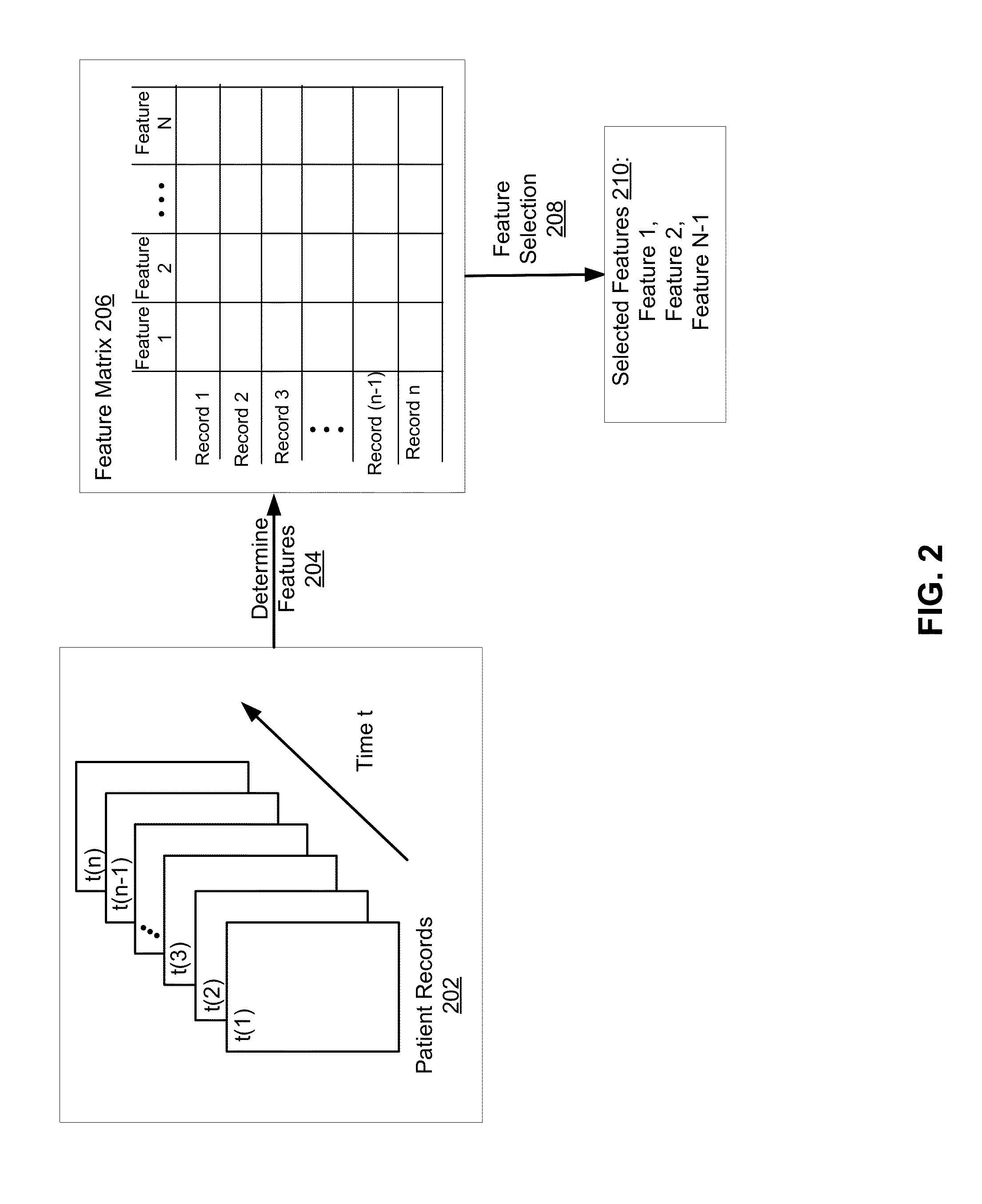System for Generating and Updating Treatment Guidelines and Estimating Effect Size of Treatment Steps
a treatment guide and algorithm technology, applied in the field of digital records, can solve the problems of limited number, obfuscate objective relationship, and inability to generate useful and accurate medical guidelines using computational algorithms, and achieve the effects of reducing the number of attempts to generate useful and accurate medical guidelines
- Summary
- Abstract
- Description
- Claims
- Application Information
AI Technical Summary
Benefits of technology
Problems solved by technology
Method used
Image
Examples
Embodiment Construction
System for Generating Medical Guidelines
[0026]FIG. 1 is an illustration of a medical guideline generation system 100 in accordance with one embodiment. The medical guideline generation system 100 generates medical guidelines for healthcare professionals by: (i) processing medical records, (ii) identifying features and medical outcomes within those records, (iii) determining patient trajectory graphs from those features and outcomes, and (iv) generating medical guidelines based on scored interventions within those graphs. To perform these various functions, the medical guideline generation system 100 includes a record processing module 106, a feature generation module 108, a patient trajectory graph module 110, a scoring module 112, an intervention and outcome identification module 114, and recommendation generation module 116. The system 100 also includes data stores such as a medical records store 102 and a patient information store 104 for storing data associated with the patients...
PUM
 Login to View More
Login to View More Abstract
Description
Claims
Application Information
 Login to View More
Login to View More - R&D
- Intellectual Property
- Life Sciences
- Materials
- Tech Scout
- Unparalleled Data Quality
- Higher Quality Content
- 60% Fewer Hallucinations
Browse by: Latest US Patents, China's latest patents, Technical Efficacy Thesaurus, Application Domain, Technology Topic, Popular Technical Reports.
© 2025 PatSnap. All rights reserved.Legal|Privacy policy|Modern Slavery Act Transparency Statement|Sitemap|About US| Contact US: help@patsnap.com



